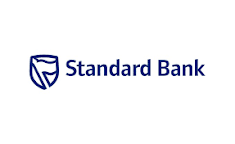Old Mutual External Bursary 2024
The Old Mutual External Bursary Programme is a remarkable initiative aimed at supporting South African students in pursuing their higher education dreams. In this article, we will explore the Old Mutual Bursary Programme, its offerings, and the fields of study it covers, with a specific focus on Actuarial Science and Accounting Sciences. We will delve into the nature of Actuarial Science and Accounting Science degrees, as well as the requirements, benefits, application process, and the closing date.
Old Mutual is a renowned financial services company that has
been operating in South Africa for over 175 years. It specializes in providing
a wide range of financial solutions, including insurance, investment, and
savings products. The company is deeply committed to supporting education and
youth empowerment, and the Old Mutual External Bursary Programme is one of the
ways it accomplishes this mission.
Fields of Study:
·
Actuarial Science
- 80% for mathematics, mathematical
literacy will not be considered
-70% for all other subjects and/or a 60%
for English Home Language.
·
Accounting Science
-70% pass for Mathematics
-70% pass for all your other subjects.
Universities students must be enrolled at or plan on enrolling
at for Actuarial Science:
·
Stellenbosch University
·
University of Pretoria
·
University of Witwatersrand
·
North-West University
·
University of Free-State
·
University of Cape town
Universities students must be enrolled at or plan on
enrolling at for Accounting Science:
·
University of Cape town
·
North-West University
·
University of fort hare
·
Stellenbosch University
·
Nelson Mandela University
·
Rhodes University
·
University of South Africa
·
University of Kwa-Zulu Natal
·
University of Free state
·
University of Johannesburg
·
University of Western Cape
·
University of Pretoria
· University of Witwatersrand
The Old Mutual Bursary Programme focuses on supporting
students pursuing degrees in Actuarial Science and Accounting Sciences.
Actuarial Science is a field that combines mathematics, statistics, economics,
and finance to analyse and manage risks in various sectors, particularly
insurance and finance. Actuaries use their skills to assess the likelihood and
financial impact of uncertain events, such as natural disasters or future
market trends. An Actuarial Science degree typically spans over four to six
years, depending on the university and the country of study.
On the other hand, Accounting Sciences involves the study of
financial information and its application in business contexts. Accounting
professionals play a crucial role in managing financial records, analysing
data, and providing valuable insights for decision-making. An Accounting
Science degree generally lasts for three to four years, again depending on the
university and the country of study.
Should you be funded by this bursary, you must be prepared
to work for Old Mutual After the completion of your studies.
Bursary Programme Requirements:
To be eligible for the Old Mutual External Bursary
Programme, applicants must meet the following requirements:
·
Be a South African citizen or permanent
resident.
·
Demonstrate academic excellence and possess a
strong academic track record.
·
Be in possession of a valid South African ID
document and be under 21 years old.
·
Have been accepted or registered at a recognized
South African university for a relevant degree in Actuarial Science or
Accounting Sciences.
Bursary Programme Offerings and Coverage:
The Old Mutual Bursary Programme offers successful applicants a comprehensive package of financial support, mentorship, and career development opportunities. The bursary covers various expenses, including tuition fees, prescribed textbooks, accommodation, return flight tickets and a monthly allowance to cover living expenses. Additionally, beneficiaries gain access to internship opportunities and mentorship from professionals within Old Mutual, fostering personal and professional growth.
Bursary Programme Duration:
The Old Mutual Bursary Programme is typically awarded for
the duration of the recipient's undergraduate degree. Renewal of the bursary
each year is contingent upon the student maintaining satisfactory academic
performance.
Apart from meeting the basic eligibility criteria, applicants for the Old Mutual Bursary Programme should demonstrate the following skillsets:
·
Strong analytical and problem-solving skills.
·
Excellent mathematical and statistical
abilities.
·
Effective communication and interpersonal
skills.
·
Attention to detail and a high level of
accuracy.
·
Ability to work independently and as part of a
team.
Application Process:
To apply for the Old Mutual Bursary Programme, interested
individuals must follow these steps: (Its recommended for applicants to have
these documents ready)
·
Visit the Old Mutual website or designated
online portal for bursary applications. Apply
·
Download and complete the bursary motivation
form then complete the online application,
·
Should you be Shortlisted, you will be sent a
link to complete psychometric assessments.
Attach all required supporting documents, such as:
·
Academic transcripts or scanned school report
cards
·
Proof of registration or acceptance at a
recognized South African university
·
Certified copy of South African ID document
·
Motivational letter or personal statement
·
Curriculum Vitae (CV)- must be one page.
·
NBT results
Closing date:
It is vital to submit the application before the specified
deadline, applications are set to close on the 31st of July 2023. Late
applications will not be considered.
Shortlisted candidates will be contacted for further
assessments, which may include interviews and aptitude tests. Successful
applicants will be notified of their bursary awards and provided with guidance on
the next steps.
The Old Mutual External Bursary Programme stands as a beacon of hope for South African students aspiring to excel in Actuarial Science and Accounting Sciences. Through its generous financial support and comprehensive development opportunities, the bursary programme empowers individuals to pursue their dreams and contribute to the growth and development of the country's financial sector. By investing in education, Old Mutual reaffirms its commitment to building a brighter future for South Africa, one talented student at a time.
Contact details:
Should you have any queries or questions, contact the Old
Mutual Early Careers team by emailing earlycareers@oldmutual.com. Best
of luck to all applicants.
Click here for a guide on how to write a compelling motivational letter.










